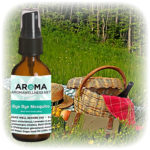Alactogogue = a substance that induces lactation.
Antimutagenic = capable of reducing the frequency of mutation
Anxiolytic = anxiety relieving
Aperitif = a small drink of alcoholic liquor taken to stimulate the appetite
Antimutagenic = capable of reducing the frequency of mutation
Anxiolytic = anxiety relieving
Aperitif = a small drink of alcoholic liquor taken to stimulate the appetite
before a meal.
Aphrodisiac = food, drug, potion, or other agent that arouses sexual desire
Astringent = severe, harsh, sharp or invigorating, causing contraction of
Aphrodisiac = food, drug, potion, or other agent that arouses sexual desire
Astringent = severe, harsh, sharp or invigorating, causing contraction of
body tissues, checking blood flow, or restricting secretions of fluids, styptic
Carminative = a drug causing expulsion of gas from the stomach or bowel, relieving flatulence
Cholagogue = a drug or other substance that promotes the flow of bile from the gall bladder into the duodenum
Cicatrisant = to close or be closed by scar formation, heal
Cordial = a stimulating medicine, anything that invigorates or exhilarates
Cytophylactic = defending or protecting, especially from disease.
Depurative = used for or capable of depurating, purifying, purgative
Diaphoretic = producing perspiration, relating to or causing sweat
Emmenogogue = a medicine or procedure that promotes menstrual discharge
Expectorant = promoting the discharge of phlegm or other fluid from the
Carminative = a drug causing expulsion of gas from the stomach or bowel, relieving flatulence
Cholagogue = a drug or other substance that promotes the flow of bile from the gall bladder into the duodenum
Cicatrisant = to close or be closed by scar formation, heal
Cordial = a stimulating medicine, anything that invigorates or exhilarates
Cytophylactic = defending or protecting, especially from disease.
Depurative = used for or capable of depurating, purifying, purgative
Diaphoretic = producing perspiration, relating to or causing sweat
Emmenogogue = a medicine or procedure that promotes menstrual discharge
Expectorant = promoting the discharge of phlegm or other fluid from the
respiratory tract from the body.
Laxative = drug or other substance used to stimulate the action of the intestines in eliminating waste
Liniment = a liquid or semiliquid preparation for rubbing on or applying to the skin, as for sprains or bruises, usually soothing or counter irritating.
Rubefacient = causing redness of the skin, as a medicinal application some organ or part
Stimulant = something that temporarily quickens some vital process or the functional activity of
Stomachic = beneficial to the stomach, stimulating gastric digestion sharpening
Laxative = drug or other substance used to stimulate the action of the intestines in eliminating waste
Liniment = a liquid or semiliquid preparation for rubbing on or applying to the skin, as for sprains or bruises, usually soothing or counter irritating.
Rubefacient = causing redness of the skin, as a medicinal application some organ or part
Stimulant = something that temporarily quickens some vital process or the functional activity of
Stomachic = beneficial to the stomach, stimulating gastric digestion sharpening
the appetite
Sudorific = causing sweat, diaphoretic
Tonic = a medicine that invigorates or strengthens
Vermifuge = any drug or agent able to destroy or expel intestinal worms, an anthelmintic
Vulnerary = used to promote the healing of wounds, as herbs or
Sudorific = causing sweat, diaphoretic
Tonic = a medicine that invigorates or strengthens
Vermifuge = any drug or agent able to destroy or expel intestinal worms, an anthelmintic
Vulnerary = used to promote the healing of wounds, as herbs or
other remedies





Recent Comments